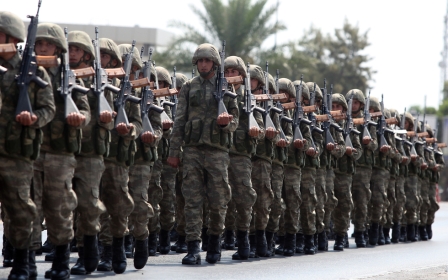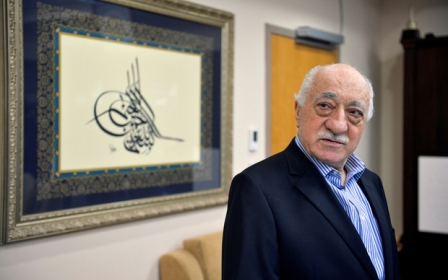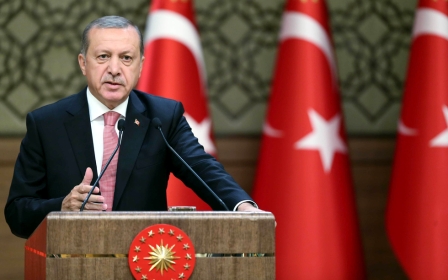Turkey orders arrest of judges as coup crackdown continues
ISTANBUL, Turkey – Turkish authorities on Thursday ordered the arrest of 648 judges and prosecutors as the country's post-coup crackdown continued.
The arrest warrants were issued by the Ankara chief prosecutor’s office, hours after they were suspended by Turkey’s Supreme Board of Judges and Prosecutors, or HSYK.
The warrants were issued in connection with the investigation into supporters of Fethullah Gulen, a cleric living in the US, and their alleged role in the failed coup attempt of 15 July.
The total number of judges and prosecutors suspended from their jobs now stands at 2,851. More than 1,500 came in the first few days after the coup attempt.
Eighty eight university staff members were also suspended from Istanbul's Marmara University.
And another 43 academics from the university reported to the Higher Education Board after they were all accused of being linked to the Gulen movement.
Turkish authorities are adamant that Gulen and his followers are part of a terrorist organisation that has been seeking to topple the government and that the 15 July coup attempt was simply the latest move in that regard.
A state of emergency, declared on 20 July, expanded government powers to issue arrest warrants and hold people in custody for up to 30 days without charge.
Turkey’s Western allies have expressed concern over the scale and speed of the post-coup crackdown, insisting that the Turkish government takes steps to ensure that legal process is observed.
Turkey has responded harshly, and even accused its Western allies of siding with coup plotters by making such statements.
Istanbul revokes permit for Turkish singer
Bulgaria deports businessman
Meanwhile, Bulgaria sparked outrage on Thursday by deporting a Gulen supporter to Turkey.
Abdullah Buyuk, a 43-year-old businessman, was deemed "a person with invalid documents" and refused political asylum, Bulgaria's interior minister, Rumyana Bachvarova, told bTV television on Thursday.
This sparked outrage in the news media and on social media, with critics charging that Sofia had bowed to Turkish pressure and had failed to follow proper legal or transparent procedures.
"It is disgusting that the Bulgarian leadership bends in such a humiliating way for the country and for every free citizen," former justice minister Hristo Ivanov said on Facebook.
The chairman the Bulgarian Helsinki Committee rights group, Krasimir Kanev, said the expulsion was "illegal".
Bulgarian media have dug around Buyuk's case for weeks after Turkey's foreign minister, Mevlut Cavusoglu, said several times that Ankara wanted Buyuk transferred back as "a traitor".
He arrived in Bulgaria in February - long before the coup - and Turkey had already sought his extradition, accusing him of "links with terrorist organisations and money laundering".
In March, two Bulgarian courts refused to send him back, saying he was "sought for political reasons" and that they "lacked guarantees for a fair trial" in Turkey.
More than 16,000 people are under formal arrest and around 6,000 are in custody without charge in Turkey.
Turkey is also looking to have a number of diplomats and military attaches based abroad found and deported.
In the latest instance, Ilhan Yasitli and Halis Tunc, both serving as military attaches at the Turkish embassy in Athens, disappeared along with their families after the coup attempt.
According to Turkish media, Greek authorities informed Cavusoglu that the attaches had travelled to Italy.
New MEE newsletter: Jerusalem Dispatch
Sign up to get the latest insights and analysis on Israel-Palestine, alongside Turkey Unpacked and other MEE newsletters
Middle East Eye delivers independent and unrivalled coverage and analysis of the Middle East, North Africa and beyond. To learn more about republishing this content and the associated fees, please fill out this form. More about MEE can be found here.




